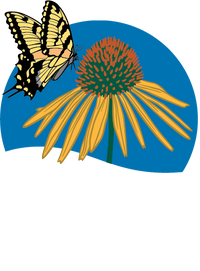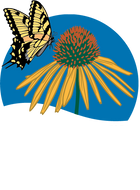



Aster novae-angliae 'Vibrant Dome' - vibrant dome New England aster

![]()

![]()
DESCRIPTION
vibrant dome New England aster
Aster novae-angliae 'Vibrant Dome'
syn. Symphyotrichum novae-angliae 'Vibrant Dome'
‘Vibrant Dome’ New England aster will brighten your garden with vibrant, hot-pink flowers in late summer and early fall. It has a neat, compact, mounded habit and is resistant to powdery mildew. The late summer flowers are an important nectar source for migrating monarchs. It is also the host plant for pearl crescent and checkerspot butterflies and is considered a valuable plant for bees. This sport of A. 'Purple Dome' has the habit of Aster ‘Purple Dome’ and a color similar to 'Alma Potschke'. Introduced by Blooms of Bressingham.
Benefits
- Attracts butterflies and honeybees
- Great nectar source for migrating monarchs
- Outstanding late summer color!
- Resistant to powdery mildew
- Deer resistant
NATIVE INFO
Native Range
Native from Maine to South Carolina, west to the Great Plaines and the mountains of Wyoming and Colorado.

Native range derived from The Biota of North America
INTERESTING FACTS
Planting a variety of asters will give you an exceptionally long flowering period and provides bees and butterflies with an important late season nectar source.
GROWING TIPS
'Vibrant Dome' performs best in fertile, well-drained soil in full sun to part shade.
Mature Size: 15-20" Tall x 24-36" Wide
Hardiness Zone: 3-8
Sun Exposure: Full Sun to Part Shade
VIDEO
Coming Soon!
American Beauties Offer Solution Based Plant Collections to Help you Choose
Quick Tips for Choosing Plants:
- Planting a variety of native trees, shrubs, perennials and vines increases biodiversity and gives wildlife a source for food, cover and nesting
- Choose a mixture of deciduous and evergreen trees so birds and other wildlife will always be able to find shelter
- Plant trees and large shrubs where they will block winter winds from the house and shade it in summer, that will save energy and lower your carbon footprint
- Try your best to buy plants that were grown locally, your independent garden center will be your best bet
- Think about ultimate height and width of the plant you choose, make sure it will fit the space you have for it when it's reached maturity
- Plant nectar plants in groups, to attract butterflies and other beneficial insects more easily
- Ask for help if you need it. Most garden centers either have a landscape designer on staff or they can give you a reference of a designer that is adept at native plant wildlife gardening. There will be upfront costs but they are small when compared to having to redo a landscape that wasn't what you really wanted
Our Plant Tags Hold the Secrets to Success
Choosing the right plants for your garden can seem like a daunting task but we’re here to help. Our horticulturists have spent a considerable amount of time researching and writing our beautiful, American Beauties plant tags to help you be successful. First of all, when you see an American Beauties branded pot at your garden center you can be confident that the plant is native to your area and a responsible choice.
When you look at our tag you’ll find information about the plants natural habitat. That will give you a clue to how it will work in your backyard. For instance if the plant is naturally founded and moist, shade and you have full sun, it’s not the plant for you. The “Features” section gives you an overview or plant description so you’ll know what to expect. While the “Benefits” section talks about the plants strong suits and how the plant will benefit wildlife.
A Special Note About Exposure
Full sun: Prefers six or more hours of direct sunshine a day
Partial shade: Thrives in three to six hours of daily sunshine
Shade: Generally does well with less than three hours of sun per day. Having said that even shade loving plants will struggle in extremely deep shade.
DOWNLOADABLE RESOURCES
Best Plants for Bees - Double sided printout for download
Best Plants for Butterflies - Double sided printout for download



